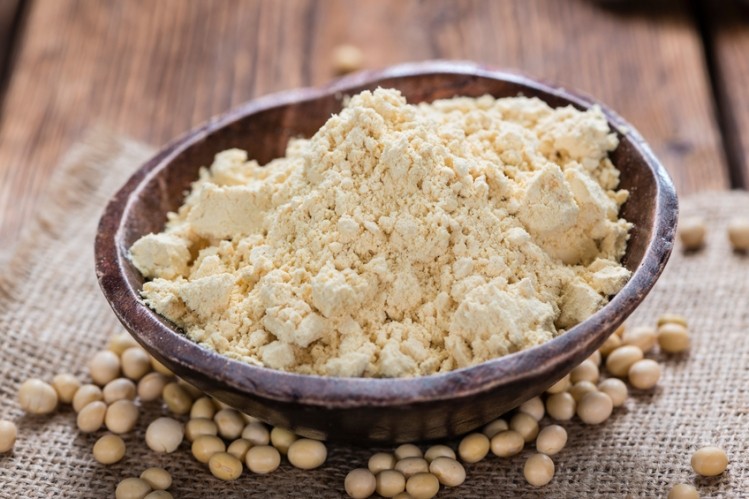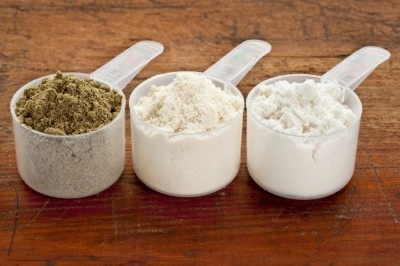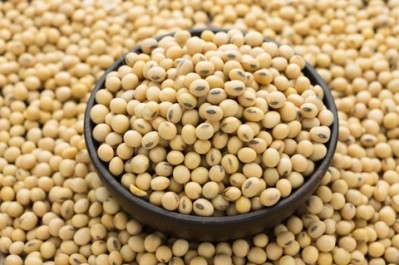Study suggests preloading soy protein isolate may benefit post-meal blood sugar levels

The researchers are building upon previous studies that suggest “protein preload” (consumption of 50-55 g of whey protein before consuming a carbohydrate-rich meal) reduced the high blood sugar levels after a meal in patients with type 2 diabetes.
“This positive whey protein preload effect on the postprandial hyperglycemic response has been attributed to an enhanced insulin response and delayed gastric emptying with increased glucose-dependent insulinotropic polypeptide, glucagon-like peptide-1 (GLP-1), and cholecystokinin secretion preceding the main meal,” the in their study published in the journal Nutrition.
But in many regions of the world, lactose intolerance may prohibit certain populations from safely ingesting whey protein. Hence, the researchers analysed if similar effects can be seen when patients preload with soy protein isolate.
The researchers argued that “the present study was the first to evaluate both glucose and insulin responses simultaneously following soy protein preload, because a previous study using a soy protein preload did not evaluate insulin secretion.”
Study design
The single-blind, randomized, crossover study was done with a total of eight healthy young Japanese adults, four males and four females with the average age of 22. Participants were selected based on being normotensive, non-smokers, not on any medication, and having no history of autonomic dysfunction or cardiovascular disease.
The participants fasted for 12 hours overnight and abstained from strenuous exercise, alcohol, and caffeine for at least one day. For the female participants, the study was scheduled during their late follicular phase, as “menstrual cycle affects gastric emptying and blood glucose, insulin, and GLP-1 concentrations,” the researchers wrote.
After overnight fasting, the participants consumed a 400-mL liquid meal containing a randomly assigned amount of soy protein isolate: 0 g, 20 g, or 40 g from Fuji Oil Co., sweetened with PAL SWEET by Ajinomoto. Thirty minutes after consuming the liquid meal, an oral glucose tolerance test was performed to evaluate each participant’s glycemic response.
Observations and results
For all doses of soy protein isolate, the blood glucose concentration significantly increased from baseline for all participants. However, between minutes 15 and 45, participants supplemented with a 40 g preload of soy protein isolate experienced lower blood glucose levels than those of the other doses.
According to the researchers, their observations and results differ from previous studies done using whey protein—while whey’s effect to glucose responses were reduced in a dose-dependent manner, and insulin responses did not significantly differ among various treatments, the soy protein isolate pre-load enhanced the insulinotropic effect and suppressed the glucose response according to dose.
“This discrepancy in insulin secretion may be explained by differences in the amino acid compositions between whey and soy proteins. The branched chained amino acids, isoleucine, leucine, and valine are most directly involved in insulin secretion,” they argued.
The researchers also wrote that differences in the main meal might explain why their results differed from previous, similar studies. While the whey protein trial had participants eat pizza after preloading, this current study used a liquid, carbohydrate-rich meal.
But the biggest common trend is that preloading of a protein clearly improved glucose responses during an oral glucose tolerance test compared with lower doses.
Promoting plant-based diets
“The consumption of animal protein, such as red meat, is associated with type 2 diabetes risk in Japanese and U.S. populations,” the researchers wrote. “Accordingly, intake of less animal and more plant proteins (e.g. soybean product) has been recommended.”
Recent data from SPINS estimates the plant-based food and beverage market to be worth $4.9 billion, having experienced a year-over-year growth of 3.4% ending June 12, 2016.
According to the researchers, the study had several limitations, including a small sample size, and inability to simultaneously measure gastric emptying. But they argues that the results were nonetheless important, especially to diabetics and populations with lactose intolerance.
They wrote: “An investigation of the effect of protein preload with different types of proteins is meaningful from the perspective of being able to choose food products according to each country/area, dietary culture and an individual's dietary phenotype.”
Source: Nutrition
Published online ahead of print, doi:10.1016/j.nut.2016.02.014
Effect of soy protein isolate preload on postprandial glycemic control in healthy humans
Authors: Hideaki Kashima, et al.














